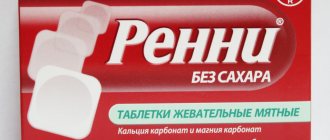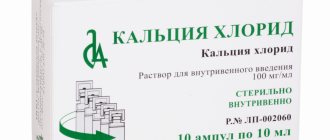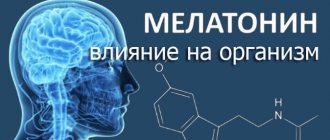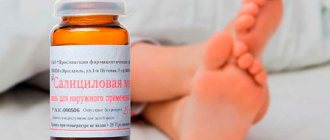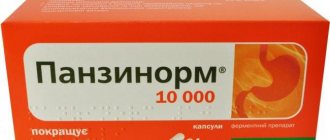Among the drugs that help the body fight stress and ensure healthy sleep, everyone is familiar with Melatonin. These are sleep pills. Let's consider the features of the drug, rules of administration, indications and contraindications, how it interacts with other drugs.
Melatonin 3 mg
Sleep is very important for our body. In our sleep, we gain strength for the next day and recover physically and mentally. When a person does not get enough sleep, he cannot work productively. Irritability, fatigue, and lack of attention appear. How can you get enough sleep without resorting to sleeping pills?
There are many natural substitutes for sleeping pills. Among the drugs that restore the sleep-wake cycle, Melatonin is well known, produced in the pineal gland and responsible for restoring strength, protecting the body from stress.
With a lack of melatonin in the body, a person becomes restless, irritable, sleep is disturbed, headaches may appear, and vice versa, if there is a lot of melatonin, memory problems appear, the person becomes more lethargic and lethargic.
Melatonin: indications for use
This is the main hormone of the pineal gland, therefore it is not a medicine, but as a supplement containing glycine and melatonin. Melatonin is a medical drug, a synthetic analogue, which is sold in tablet form.
Is Melatonin a dietary supplement or a medicine? This is a dietary supplement. In Europe and Asia, to buy Melatonin in a pharmacy, you need a prescription. In the USA it is sold freely as a dietary supplement - dietary supplement.
How does Melatonin affect the body?
- Helps with insomnia, regulates the sleep cycle.
- Regulates the functioning of the cardiovascular system.
- Regulates metabolic processes in the body.
- Works as antioxidant protection.
- Slowing down the aging process in the body.
- Eliminate headaches.
- Improvement, increase in stress resistance.
- Immunity increases.
It is also responsible for synchronizing the biological clock and setting it up. The drug helps people adapt to time zone changes, regulates neuroendocrine functions in the body, and reduces stress levels.
Melatonin is a hormone that, when taken, sends a signal to the brain to put a person to sleep. This means that after taking the drug it will help you fall asleep. If the cause of insomnia lies in overwork or stress, then this is the best drug.
Attention! The drug helps the body rest, but does not cure insomnia. For this purpose other drugs are prescribed. As part of therapeutic treatment, the attending physician determines the course of treatment for insomnia and determines the dosage of the drug in combination with others.
Publications on the topic of the month “How to overcome post-Covid syndrome”
- Lung recovery after coronavirus
- Restoring the sense of smell after coronavirus
- Restoring memory after suffering from coronavirus
- Overcoming mental disorders during post-Covid syndrome
- We are experiencing COVID. How the coronavirus pandemic affects mental functioning
- Post-Covid screening - examination after a new coronavirus infection
- How to return digestion to normal after coronavirus?
- Loss of smell due to COVID-19 - advice from an otolaryngologist
- Recommendations from a cardiologist after suffering from COVID-19
- Coronavirus turned out to be “vindictive” - what is important to know
- Post-Covid syndrome: program for diagnosis and regression of post-Covid symptoms. How to Manage Long-Term Long COVID Symptoms
pharmachologic effect
After taking melatonin, it immediately begins to show its effect. It has hypnotic, sedative, antioxidant and adaptogenic effects. The drug is quickly absorbed into the stomach, enters the bloodstream and begins to act immediately.
It is actually a sleeping pill that exhibits its properties within 24 hours. Melatonin is produced from serotonin, but dulls the effects of the latter. The amount of melatonin produced by our body directly depends on the amount of serotonin. This means that if you don't spend much time outdoors, you may be prescribed Melatonin.
It turns out that the drug will be effective if there is a lack of the hormone in the body. At the same time, if insomnia is caused by pathologies of internal organs, then Melatonin will not help.
Interaction
When taking Aspirin , beta blockers, the level of melatonin in the body may decrease.
If you take melatonin and tranquilizers, sedative antidepressants at the same time, the effect of melatonin may decrease.
Possible effect on the effectiveness of hormonal agents.
Under the influence of melatonin, the level of binding of benzodiazepines to specific receptors increases. Therefore, such a combination is possible only with careful medical supervision.
With simultaneous use, the antitumor effect of Tamoxifen .
With simultaneous treatment, it is possible to enhance the dopaminergic and serotonergic effects of methamphetamines.
When treated with Melatonin, the antibacterial effect of Isoniazid .
Melatonin tablets: instructions
Melatonin is not a vitamin, but a hormone, and dosage and administration must be approached carefully. Before taking the drug, you should consult your doctor. You need to start with small doses, gradually increasing them. The regimen is also prescribed by the attending physician. Melatonin is taken 30 minutes before bedtime with plenty of water. You should not take it before leaving home or before work, as you will feel drowsy and your attention will be dulled.
If you want to buy melatonin, instructions for use are included in the package with the drug and must be studied carefully. Do not forget that melatonin is a hormone, which means it requires caution in use.
Melatonin is available in drops and tablets. You can choose the shape that suits you best.
Melatonin, 3 mg, film-coated tablets, 20 pcs.
Evalar, Russia
Price from 180₽
There are contraindications. Specialist consultation is required.
special instructions
It should be borne in mind that when taking tablets, there may be an adverse effect on concentration and the speed of physical and mental reactions. It is not recommended to drive vehicles or perform potentially dangerous activities that require special attention during therapy.
When treated with Melatonin, you should not smoke or drink alcohol.
Women who are trying to become pregnant should be aware that Melatonin may act as a weak contraceptive.
During the period of taking the medicine, you should avoid too bright lighting.
Contraindications
Despite the fact that Melatonin is a dietary supplement, it should not be taken by patients with liver failure, hypersensitivity to the main components of the drug, diseases or severe renal failure. Melatonin should not be taken by pregnant women, during breastfeeding, or by children under 12 years of age.
Melatonin has long been well known as a sleep pill. We do not recommend prescribing this drug for yourself, but should only take it after consultation with your doctor.
Study of the level of melatonin metabolite in the urine of children with attention deficit hyperactivity disorder
Introduction. Attention deficit hyperactivity disorder (ADHD) is one of the pressing problems in neurology, psychiatry and pedagogy. ADHD is one of the most common neuropsychiatric disorders in childhood. According to the authors, the prevalence of this syndrome among children varies from 2% to 12% [3].
The main problem with ADHD is that children with normal intelligence cannot learn adequately. In addition, they are at risk for developing addictive disorders: alcoholism and drug addiction [2]. The etiology is combined. There are several groups of factors that can cause the syndrome. These are medical and biological factors that include early organic brain damage in the pre- and perinatal period. Psychosocial factors presuppose unfavorable conditions of the microsocial environment and characteristics of the child’s upbringing. They play only an indirect role in the development of the disease, mediating the action of biological and hereditary factors. Hereditary predisposing factors include congenital inferiority of certain brain systems that regulate the psychomotor and autonomic activity of the body [1,6]. The polyetiological nature of the disease, in turn, dictates an integrated approach to its diagnosis and treatment.
Epidemiological studies conducted around the world indicate a widespread prevalence of ADHD among school-age children in the United States of America (USA), ranging from 5 to 7%; in the UK - 1-3%; Germany - 9-18%, in China - 1-13%; in Czechoslovakia - 10-12% [1]; in Russia - 7-28% (Moscow and Moscow region) [4]. Such a wide range of figures is due, first of all, to the lack of uniform diagnostic criteria and methods for assessing ADHD symptoms.
In its pure form, the syndrome occurs only in 30% of cases. Most often, the syndrome is accompanied by comorbid conditions, such as tics, anxiety-affective disorders, and enuresis.
Often, signs of ADHD are combined with sleep disorders. A study of sleep disorders found that hyperactive children fall asleep worse, wake up more often at night, and are drowsy in the morning [1]. However, it is unknown whether insufficient sleep is the cause of increased inattention, or whether motor disinhibition and increased excitability prevent children from getting a good night's sleep. It is possible that improving sleep in children with ADHD will reduce symptoms of the disorder.
As is known, the hormone melatonin (MT), synthesized by the pineal gland, plays an important role in the regulation of sleep [5]. Physiological control of the function of the pineal gland is carried out mainly by the light regime. In the light, the production of hormones is suppressed, and in the dark phase it increases. The pineal gland releases its hormones into the blood. Free melatonin is hydroxylated and conjugated with sulfuric (70-80%) and glucuronic acids (5%) in the liver, and is excreted in the urine in the form of sulfates and glucuronides. It is known that melatonin itself has a short half-life (about 30 minutes) and is quickly eliminated from the bloodstream, so it is more convenient to study the level of its main metabolite in the urine - 6-sulfatoxymelatonin, the concentration of which correlates well with the overall level of the hormone in the blood. Melatonin regulates the sleep-wake rhythm, and complaints of difficulty falling asleep and problems waking up in a child suggest a change in the circadian biorhythms of this hormone in ADHD.
Materials and methods. The study included two groups of children: the main group (28 people) and the control group (11 people). The main group included patients with an established diagnosis of ADHD in accordance with the criteria of the International Classification of Diseases, 10th revision (ICD 10) and the Diagnostic and Statistical Manual of mental disorders (DSM - IV). The age of children is from 4 to 9 years, the average is 7 years. The control group was formed from healthy children aged 5 to 9 years, average age - 6.5 years. In all children, the neurological status was examined, the anamnesis was studied (social status of the family, the age of the parents at the time of the birth of the child, the characteristics of the course of labor in the mother, the presence of symptoms of hyperactivity in the parents). In addition, complaints about sleep disturbances in the child and the presence of somatic pathology were clarified.
ADHD symptoms were assessed using the Swanson Nolan and Pelham IV (SNAP IV) and intelligence was assessed using the Wechsler Child Version. To objectively assess the functional state of the brain of some sick children (64%) and some healthy children (50%), electroencephalography (EEG) was recorded using an encephalograph analyzer "Encephalan" - EEG-21\26 Mod 10 - with computer support (elite version ).
The main objective of the study was to assess the urinary excretion in the evening and at night of the main metabolite of melatonin, 6-sulfatoxymelatonin (6-SMT), using the enzyme-linked immunosorbent method, and to identify changes in the circadian biorhythms of melatonin by comparing the data obtained. Urine samples were collected from patients 1 hour before bedtime and at 8 a.m., providing a simple, noninvasive method convenient for both patient and clinician.
The work used methods of descriptive and analytical medical statistics using probabilistic statistical approaches, as well as packages of standard programs for the WINDOWS environment, including STATISTICA 6 and EXCEL ACCESS. To identify statistically significant differences, the parametric Student t test, as well as the nonparametric Mann Whitney U test and the Wald-Wolfowitz series test, were used.
Results. The following indicators of 6-SMT content in urine in the evening were identified: among patients with ADHD (N=28): average 5.01±3.71 ng/ml (Fig. 1). The minimum value was recorded at 0.2 ng/ml, the maximum – 15.8 ng/ml. The average metabolite content in morning urine in the study group was 49.42±7.77 ng/ml, the minimum and maximum were 32.10 and 56.71 ng/ml, respectively.
Rice. 1. Content of 6-sulfatoxymelatonin in urine in the evening in patients with ADHD.
In the control group (N = 11), the content of the studied melatonin metabolite in urine in the evening ranged from a minimum of 6.71 ng/ml to a maximum of 29.90 ng/ml, averaging 15.85 ± 6.49 ng/ml ( Fig.2). The 6-SMT content in the morning urine averaged 46.63±8.23 ng/ml, from a minimum of 36.19 ng/ml to a maximum of 56.71 ng/ml.
Rice. 2. Content of 6-sulfatoxymelatonin in urine in the evening in healthy children.
A comparison was made of the content of melatonin metabolite in the corresponding portions of urine between the main and control groups. Using the parametric Student's t-test, a statistically significant difference was revealed between the average values of 6-SMT content in the evening urine (P = 0.0198). The use of the non-parametric Mann-Whitney U test (P = 0.000018) and the Wald-Wolfowitz series test (P = 0.00039) also confirmed with a high degree of reliability a decrease in the content of the melatonin metabolite in the urine of patients with ADHD in comparison with the control group (Fig. 3 ).
Rice. 3. Comparison of the level of sulfatoxymelatonin 6 in the evening urine of patients with ADHD and healthy children.
There were no statistically significant differences in the content of 6-SMT in the morning urine between the main and control groups (P ˃ 0.05).
Discussion. Thus, the study showed that there is a statistically significant decrease in the content of melatonin metabolite in the urine of patients with ADHD in comparison with healthy children, which allows us to conclude that there is a change in the daily rhythms of melatonin production. Data analysis suggests the important role of melatonin in the pathogenesis of ADHD and, in particular, explains the presence of such a symptom as sleep disturbance. This fact opens up the prospect of using melatonin as not only a diagnostic test, but also a pharmacological agent in the complex treatment of the syndrome.
Overdose
Due to the wide distribution and availability in pharmacies, as well as the availability of a wide selection of medications for the treatment of insomnia, people began to abuse medications, which led to a number of side effects. This also applies to Melatonin. An overdose of Melatonin may cause some symptoms such as drowsiness, confusion, and anxiety. More serious violations include:
- disruption of the cardiovascular system;
- osteoporosis, which results in leaching of calcium from the bones;
- kidney problems due to water-salt imbalance;
- atrophy of muscles, especially the heart muscle - myocardium.
These and other side effects can occur with a severe overdose of the drug.
In order not to harm your health, the tablets should be taken according to the instructions. An overdose of Melatonin can lead to serious health problems, so you should not take it without a doctor's prescription.
Analogs
To normalize all processes and restore health, you can use melatonin analogs that contain the same hormone. Among melatonin analogues, there are drugs that can be used to treat insomnia. They have a similar mechanism of action, but have their own characteristics.
Let's look at what melatonin analogues are, how they work, and in what cases they should be taken.
If it is not possible to buy Melatonin, analogues can be considered as an alternative. Melatonin analogues are natural stimulators of sleep hormone production, including:
- Circadin is used to treat primary insomnia. (available by prescription only)
- Melarithm is similar in its effect to the action of melatonin, and is used for sleep disorders.
- Melarena is a sedative and adaptogenic medicine prescribed for insomnia.
- Melaxen is prescribed for insomnia in older people.
Melarithm, 3 mg, film-coated tablets, 30 pcs.
Obolenskoye, Russia
Price from 440₽
Melarena, 3 mg, film-coated tablets, 10 pcs.
STADA, Russia
Price from 207₽
Melaxen, 3 mg, film-coated tablets, 24 pcs.
Unipharm, USA
Price from 524₽
There are contraindications. Specialist consultation is required.
There are a huge number of drugs in the world that have a similar effect as the original Melatonin Evalar. They all contain the active substance, but in different dosages. In preparations containing a large dose of melatonin, it is in the form of a purified and stable form.
Such drugs are more effective than drugs containing only the sleep hormone. There are also preparations that contain only pure melatonin. If you want to save money, then buy analogues rather than melatonin.
In order to receive a drug containing a large dose of the sleep hormone, you need to buy the original drug, but do not forget to consult with your doctor before doing so.



